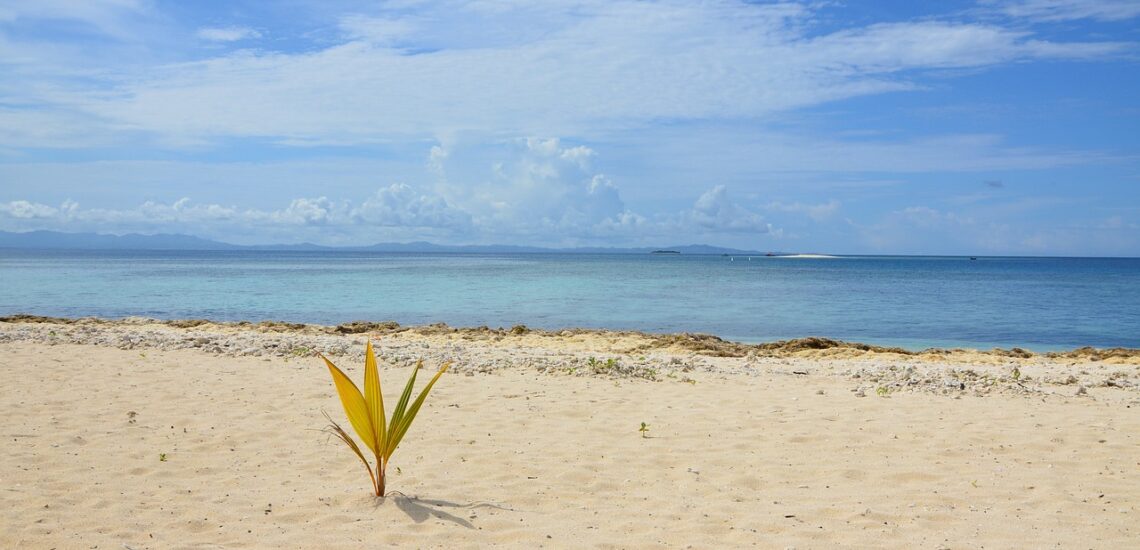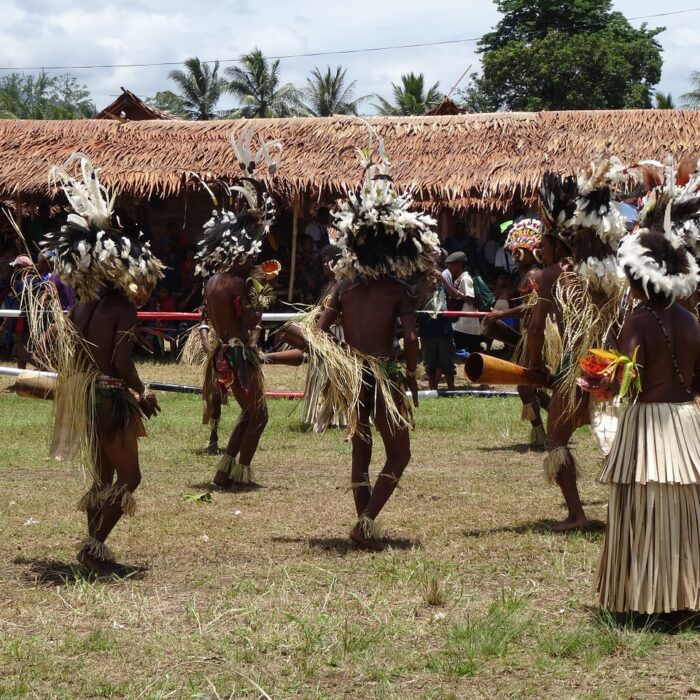10 Interesting Facts About Fiji
Quick facts about Fiji:
- Population: Approximately 900,000 people.
- Capital: Suva.
- Official Languages: English, Fijian, and Hindi.
- Currency: Fijian Dollar (FJD).
- Government: Parliamentary representative democratic republic.
- Major Religion: Christianity.
- Geography: Located in the South Pacific Ocean, comprising more than 330 islands, with the two largest being Viti Levu and Vanua Levu.
Fact 1: Fiji is an island nation with over 300 islands
Fiji is an island nation in the South Pacific Ocean, comprised of more than 300 islands, although only around 110 of these islands are inhabited. Despite the large number of islands, the majority of Fiji’s population resides on just two main islands: Viti Levu and Vanua Levu. These islands are the largest in the country and are home to Fiji’s major cities, towns, and infrastructure. Viti Levu, in particular, is the most populous and economically significant island, housing the capital city of Suva and the major tourist hub of Nadi. Vanua Levu, while less populated, is still home to several towns and villages. The concentration of population on these two islands reflects the importance of urban centers and economic opportunities in shaping settlement patterns in Fiji.
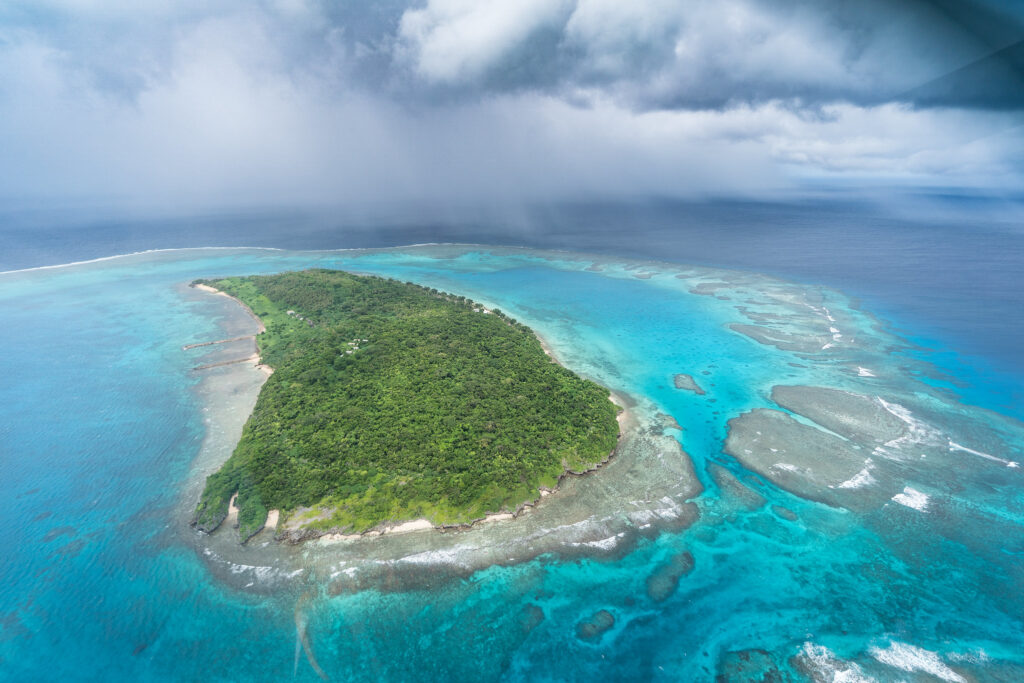 Eugene Kaspersky, (CC BY-NC-SA 2.0)
Eugene Kaspersky, (CC BY-NC-SA 2.0)Fact 2: The main means of transportation are light airplanes
Except for two islands where, of course, the main transport is cars. You can travel between the islands either by air or by water. Fiji Airways operates regular domestic flights connecting the major islands and smaller airstrips throughout the archipelago. These flights provide essential links for both residents and tourists, offering convenient access to remote islands, resorts, and communities that may not be easily accessible by other forms of transportation. Additionally, seaplanes and helicopters are also used for inter-island travel in Fiji, providing further options for reaching the more isolated and picturesque destinations in the country.
Note: If you are planning a trip to the country, check if you need an International Driver’s License in Fiji to drive.
Fact 3: The national sport is rugby
The Fiji national rugby union team, known as the “Flying Fijians,” competes in international competitions such as the Rugby World Cup, where they have achieved notable success, including reaching the quarter-finals on multiple occasions.
Rugby sevens is also immensely popular in Fiji, with the national team, the Fiji national rugby sevens team, being one of the most successful and celebrated teams in the world. Fiji has won multiple gold medals at the Olympic Games in rugby sevens, further cementing its status as a powerhouse in the sport.
 Jason Eckmire from London, England, CC BY 2.0, via Wikimedia Commons
Jason Eckmire from London, England, CC BY 2.0, via Wikimedia CommonsFact 4: There are Hindu temples in Fiji
Fiji has a significant population of Indo-Fijians, descendants of Indian indentured laborers brought to the country during the colonial era. As a result, Hinduism is one of the major religions practiced in Fiji, alongside Christianity and other faiths.
Throughout Fiji, particularly in areas with large Indo-Fijian communities, you can find Hindu temples, also known as mandirs. These temples serve as places of worship and community gatherings for Fijian Hindus, providing a spiritual and cultural center for their religious practices and celebrations.
Hindu temples in Fiji often feature ornate architecture, intricate carvings, and vibrant colors, reflecting the rich cultural heritage of the Indian diaspora in the country. They play a significant role in preserving Hindu traditions, rituals, and festivals, such as Diwali (the Festival of Lights), Navratri, and Holi, while also serving as important hubs for social and charitable activities within the local communities.
Fact 5: Fiji has a very diverse underwater world and many reefs
Situated in the heart of the South Pacific Ocean, Fiji boasts pristine marine ecosystems, teeming with a wide variety of marine life, vibrant coral formations, and colorful reef fish.
The country is surrounded by the Great Sea Reef, the third-largest barrier reef system in the world, which stretches for over 200 kilometers (120 miles) along the northern coast of Viti Levu and Vanua Levu. Additionally, Fiji is home to numerous other coral reefs, atolls, and underwater seamounts, offering a wealth of dive sites for exploration.
Divers and snorkelers in Fiji have the opportunity to encounter a diverse array of marine species, including reef sharks, manta rays, sea turtles, colorful reef fish, and anemones. The underwater landscapes feature intricate coral gardens, underwater caves, and dramatic drop-offs, providing endless opportunities for underwater exploration and photography.
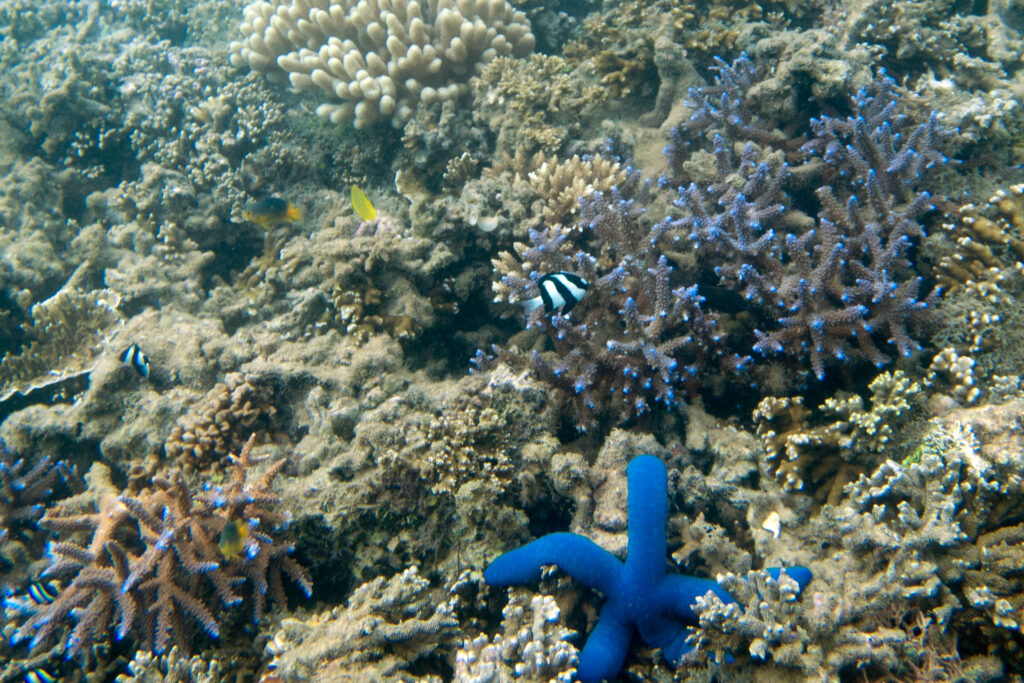 Paul Asman and Jill Lenoble, CC BY 2.0, via Wikimedia Commons
Paul Asman and Jill Lenoble, CC BY 2.0, via Wikimedia CommonsFact 6: The national drink of the Fijians is made from the root of a plant
The national drink of Fiji, often considered symbolic of Fijian culture, is kava. Kava is made from the root of the kava plant (Piper methysticum), which is native to the South Pacific islands, including Fiji.
Kava has a long history of traditional use in Fiji and other Pacific Island nations. It is prepared by grinding the root of the kava plant into a fine powder, mixing it with water, and then straining the liquid to produce a beverage. The active compounds in kava, known as kavalactones, have mild sedative and anesthetic properties, leading to a relaxing and euphoric effect when consumed.
In Fiji, kava plays a significant role in social and ceremonial gatherings, serving as a symbol of hospitality, friendship, and community bonding. It is often shared among friends and family during important occasions, such as weddings, festivals, and village meetings.
Fact 7: Fiji’s water area is 70 times larger than the islands
Fiji’s Exclusive Economic Zone (EEZ), which encompasses its territorial waters and maritime boundaries, is approximately 1.29 million square kilometers (or about 497,000 square miles) in size. In contrast, the land area of the Fiji Islands themselves is around 18,272 square kilometers (or about 7,055 square miles), including all of its islands, islets, and reefs.
Therefore, if we compare the size of Fiji’s water area (1.29 million square kilometers) to the land area of the islands (18,272 square kilometers), the water area is significantly larger, approximately 70 times the size of the land area. This vast maritime territory plays a crucial role in Fiji’s economy, providing valuable resources, such as fisheries, tourism opportunities, and shipping routes, while also contributing to the country’s cultural and environmental heritage.
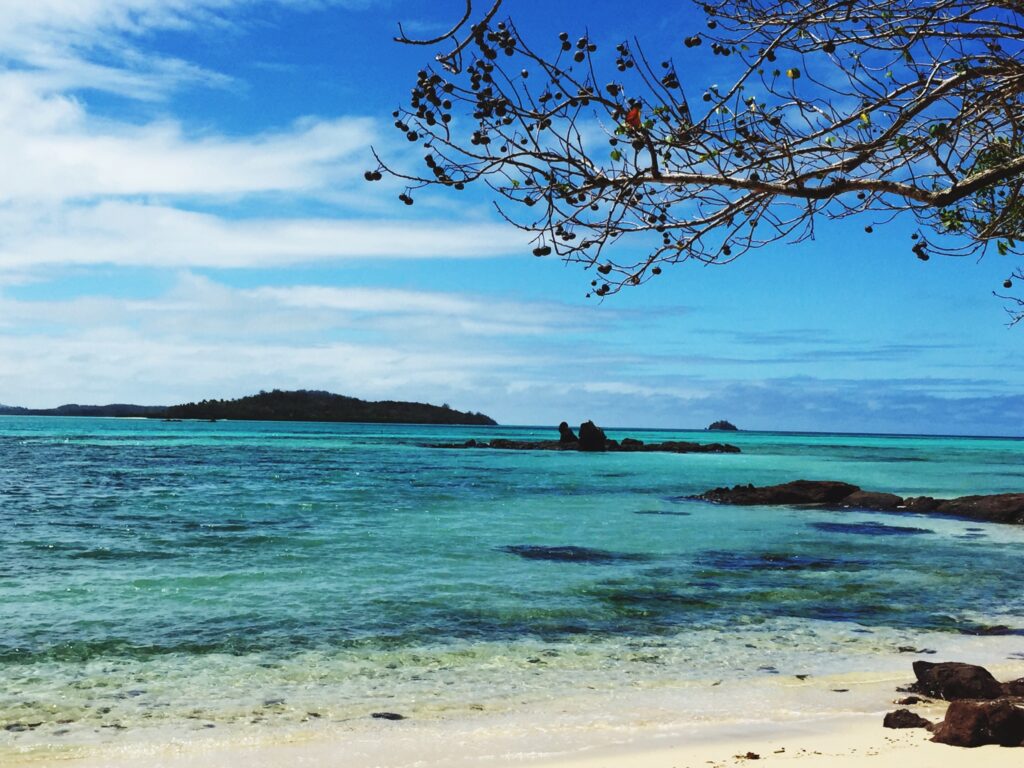 Barb Dybwad, (CC BY-NC-SA 2.0)
Barb Dybwad, (CC BY-NC-SA 2.0)Fact 8: Cannibalism existed in Fiji and there were bloody tribal wars before colonialism
Historically, cannibalism was practiced in certain regions of Fiji, particularly during the pre-colonial era and early contact with Europeans. It was often associated with cultural and religious beliefs, ritual practices, and social hierarchy. Tribal warfare was also common, fueled by disputes over land, resources, and political power. These conflicts could be violent, resulting in casualties and the capture of prisoners who might be subjected to cannibalistic rituals. However, with the influence of Christianity, European colonization, and the establishment of colonial governance, these practices declined significantly. Today, they are regarded as part of Fiji’s historical past, no longer practiced in modern Fijian society.
Fact 9: Rainwater is collected and used as a valuable resource
Rainwater collection is a common and valuable practice in Fiji. With abundant rainfall throughout the year, Fijians have long relied on collecting rainwater as a vital resource for various purposes. Rainwater harvesting systems, such as roof catchment systems and storage tanks, are widely used to capture and store rainwater for drinking, cooking, bathing, irrigation, and other household needs. This sustainable practice helps to reduce reliance on groundwater sources and ensures access to clean water, particularly in rural areas where access to piped water may be limited. Additionally, rainwater harvesting promotes water conservation and resilience to droughts, making it an essential component of Fiji’s water management strategy.
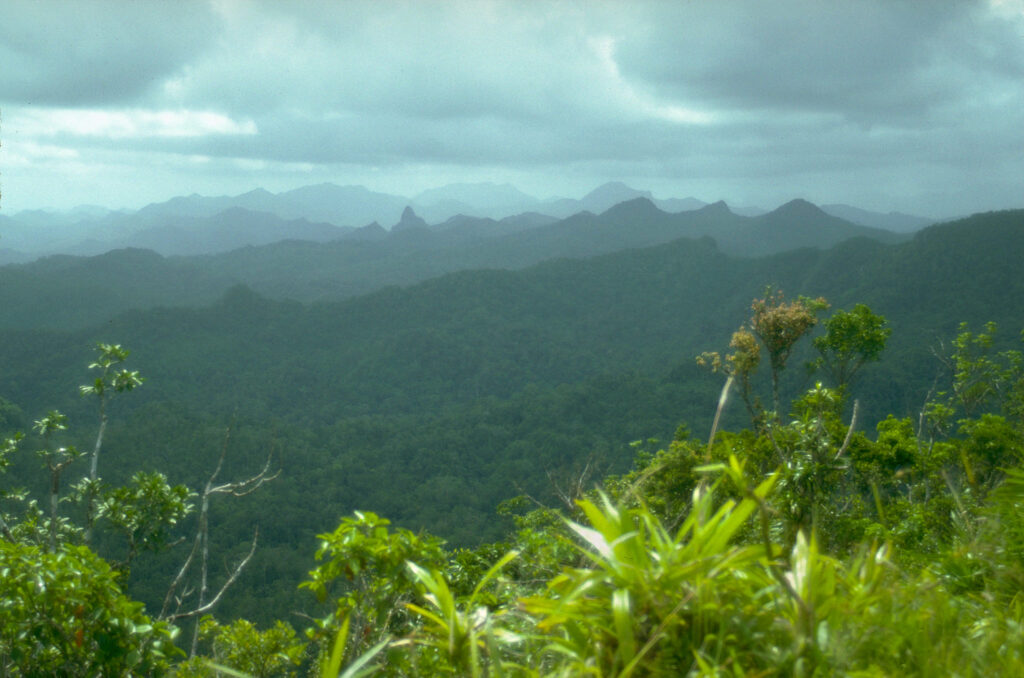 John Game, (CC BY 2.0)
John Game, (CC BY 2.0)Fact 10: Fiji has more than 1,500 species of insects
Fiji is home to a rich diversity of insect species, with an estimated number exceeding 1,500 species. This includes a wide variety of insects belonging to different taxonomic groups, such as beetles, butterflies, moths, ants, bees, flies, mosquitoes, grasshoppers, and more. The tropical climate and diverse ecosystems found across the islands of Fiji provide ideal habitats for insects to thrive and adapt to various ecological niches. Insects play essential roles in pollination, decomposition, nutrient cycling, and ecosystem functioning.

